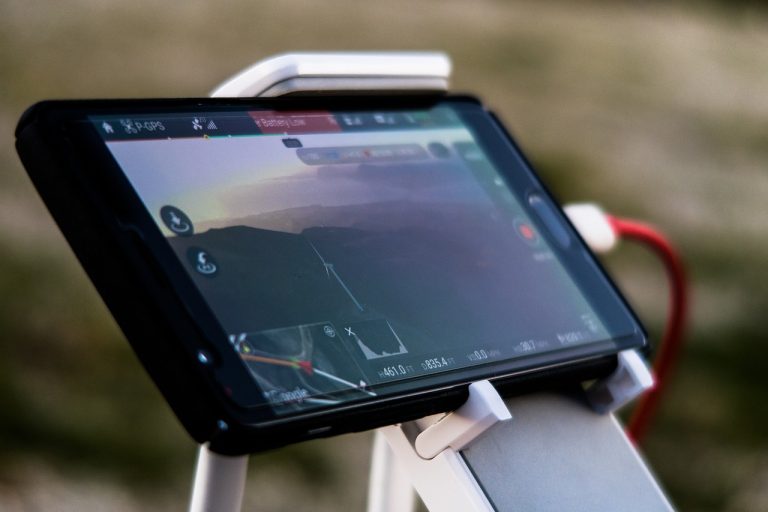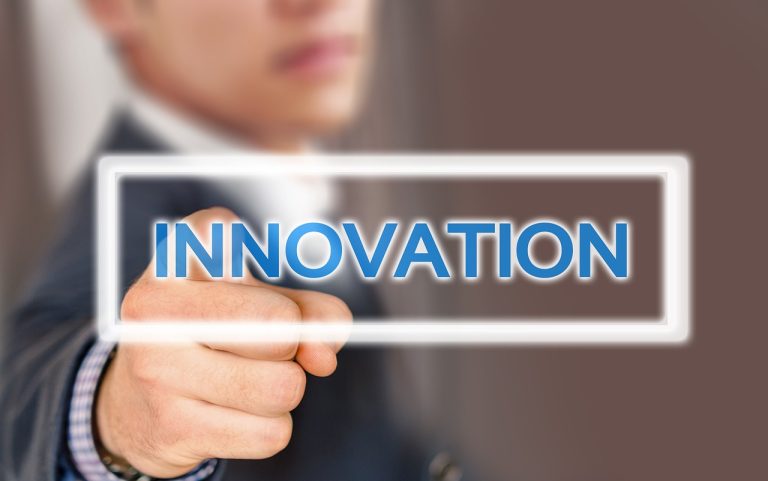
The world is moving at a breakneck speed, and technology is the engine driving this exhilarating journey into the future. From the moment you wake up to the sound of your smart alarm to the time you cozy up with your favorite streaming service, technology is woven into the fabric of our daily lives. It’s not just about convenience; it’s about transforming our reality in ways we never imagined. Have you ever wondered how these innovations are reshaping industries and enhancing our everyday experiences?
Let’s take a moment to explore some of the groundbreaking advancements that are making waves today. For instance, consider the rise of Artificial Intelligence (AI). This isn’t just a buzzword; it’s a revolution that’s redefining sectors like healthcare, finance, and even entertainment. Imagine AI algorithms analyzing vast amounts of data in seconds, providing insights that help businesses make smarter decisions. Isn’t it fascinating how something once limited to science fiction is now a part of our reality?
Moreover, smart home technologies are stepping in to redefine how we interact with our living spaces. Picture this: a home that anticipates your needs, adjusts the lighting based on your mood, and even secures itself while you’re away. These innovations are not just about luxury; they promise a level of convenience and security that makes life easier and more enjoyable.
As we dive deeper into this tech-savvy world, we can’t overlook the importance of renewable energy solutions. With climate change looming large, innovations in solar and wind energy are crucial. They offer a sustainable path forward, allowing us to harness nature’s power while reducing our carbon footprint. It’s like planting a seed today for a greener tomorrow!
So, buckle up as we embark on this journey through the latest tech innovations. The future is bright, and it’s filled with possibilities that can change our lives for the better.
Artificial Intelligence Revolution
Artificial Intelligence (AI) is not just a buzzword; it’s a game-changer that’s reshaping our world in ways we never thought possible. Imagine a world where machines can learn, adapt, and even think like humans. Sounds like science fiction? Well, it’s happening right now! From automating mundane tasks to making complex decisions, AI is infiltrating various sectors, enhancing efficiency and productivity.
One of the most exciting applications of AI is in healthcare. AI-driven algorithms can analyze medical data faster than any human, providing insights that lead to better patient outcomes. For instance, AI systems can predict diseases before symptoms even appear, allowing for early intervention. But with great power comes great responsibility. The ethical considerations surrounding AI are crucial. How do we ensure that AI is used responsibly? Questions about data privacy, algorithmic bias, and accountability are at the forefront of discussions about AI integration in society.
Moreover, AI is revolutionizing industries like finance, where algorithms can predict market trends and make investment decisions in real-time. In the realm of customer service, AI-powered chatbots are providing instant support, enhancing customer experience while reducing operational costs. As AI continues to evolve, we must ponder its implications: Are we ready to embrace a future where machines play a significant role in our lives?
In summary, the AI revolution is just beginning, and its potential is limitless. As we stand on the brink of this technological frontier, it’s essential to navigate the challenges and opportunities it presents. The future is bright, but it’s up to us to ensure that AI serves humanity’s best interests.
Smart Home Technologies
Welcome to the future, where your home is not just a shelter but a smart ecosystem! Smart home technologies are revolutionizing the way we live, bringing convenience and security right to our fingertips. Imagine controlling your lights, thermostat, and even your coffee maker with just a tap on your smartphone or a simple voice command. Sounds like something out of a sci-fi movie, right? But it’s happening now!
These innovations are more than just cool gadgets; they are designed to enhance our daily lives. For instance, smart thermostats can learn your schedule and adjust the temperature accordingly, saving you money on energy bills while keeping your home cozy. Similarly, smart security systems offer peace of mind by allowing you to monitor your property from anywhere in the world. You can receive alerts, view live feeds, and even interact with visitors at your door through your smartphone. It’s like having a personal security guard that never sleeps!
But how do these technologies work together? The magic lies in the Internet of Things (IoT), where devices communicate with each other to create a seamless experience. Here’s a quick look at some popular smart home devices:
| Device | Functionality |
|---|---|
| Smart Speakers | Control your home with voice commands and play music. |
| Smart Lights | Adjust brightness and color from your smartphone or voice. |
| Smart Plugs | Turn any device into a smart device by controlling it remotely. |
As we embrace these technologies, the possibilities are endless. Whether you’re a tech enthusiast or just looking to simplify your life, smart home technologies offer a glimpse into a future where our homes are not just places to live, but intelligent environments that cater to our needs. So, are you ready to make your home smarter?
Renewable Energy Solutions
In today’s world, the urgency for sustainable energy sources has never been more pronounced. As we face the looming threat of climate change, are emerging as a beacon of hope, offering not just alternatives but also innovative ways to power our lives. Imagine a world where clean energy is the norm, not the exception—this is the future we’re striving for.
Solar, wind, and hydroelectric power are leading the charge in this energy revolution. These technologies are not only efficient but also increasingly affordable. For instance, the cost of solar panels has plummeted by over 80% in the last decade, making it accessible for households and businesses alike. Wind energy is also making waves, with advancements in turbine technology allowing for greater energy capture even in low-wind areas. But how do these solutions stack up against traditional energy sources?
| Energy Source | Advantages | Challenges |
|---|---|---|
| Solar | Low operating costs, scalable | Intermittent production, space requirements |
| Wind | High energy yield, low emissions | Noise, impact on wildlife |
| Hydroelectric | Reliable, can store energy | Environmental impact, high initial cost |
As we delve deeper into these technologies, it’s essential to recognize their potential to not only reduce our carbon footprint but also to create jobs and stimulate economic growth. The transition to renewable energy is akin to upgrading from a flip phone to a smartphone; it’s not just about having a new gadget, but about unlocking a world of possibilities. So, what can you do to be part of this exciting shift? Embrace renewable energy solutions in your own life. Whether it’s installing solar panels or opting for green energy plans, every little action counts.
In conclusion, renewable energy is not merely a trend; it’s a necessity for a sustainable future. By harnessing the power of nature, we can pave the way for cleaner air, healthier communities, and a thriving planet. The question remains: are you ready to join the revolution?
Healthcare Innovations
In recent years, the healthcare sector has been on an exhilarating journey, propelled by groundbreaking technological advancements that are redefining patient care. Imagine a world where you can consult with your doctor without leaving your home; this is now a reality thanks to telemedicine. It has transformed how we access healthcare services, making it easier and more convenient for patients to receive timely advice and treatment. No more long waits in crowded waiting rooms!
Moreover, the rise of wearable devices has taken health monitoring to new heights. These gadgets, which include smartwatches and fitness trackers, allow individuals to keep an eye on their vital signs in real-time. They provide valuable data that can be shared with healthcare providers, enabling more personalized and proactive care. Imagine having a personal health assistant on your wrist, constantly looking out for you!
Additionally, the integration of AI-driven diagnostics is revolutionizing how diseases are detected and treated. By analyzing vast amounts of data, AI can identify patterns that might go unnoticed by human eyes. This not only speeds up the diagnostic process but also enhances accuracy. For instance, AI algorithms are being used to detect early signs of conditions like cancer, significantly improving patient outcomes.
Despite these advancements, it’s essential to address some ethical considerations. As we embrace these innovations, we must ensure that patient privacy is protected, and that technology is accessible to everyone. The goal is to create a healthcare system that is not only efficient but also equitable.
In conclusion, the intersection of technology and healthcare is paving the way for a future where medical care is more accessible, efficient, and personalized. As we continue to innovate, the possibilities are endless, and the potential to enhance lives is profound.
Blockchain and Cryptocurrency
Imagine a world where your financial transactions are not just secure but also incredibly transparent. Blockchain technology is making that a reality. At its core, blockchain is a decentralized ledger that records transactions across many computers, ensuring that the data cannot be altered retroactively. This means that every transaction is traceable, which can significantly reduce fraud and enhance trust in various sectors.
But what does this mean for you? Well, cryptocurrencies like Bitcoin and Ethereum are at the forefront of this revolution. They offer an alternative to traditional banking systems, allowing individuals to conduct transactions without the need for intermediaries. This is a game-changer, especially in regions where banking services are limited or non-existent. With just a smartphone and an internet connection, anyone can access financial services, making it a powerful tool for financial inclusion.
However, as with any innovation, there are challenges to consider. The volatility of cryptocurrencies can be daunting. Prices can swing wildly, making it a risky investment. Additionally, the environmental impact of mining cryptocurrencies has raised eyebrows. Many are now advocating for more sustainable practices within the industry. What’s the solution? Some companies are exploring proof-of-stake systems, which are less energy-intensive compared to traditional mining methods.
As blockchain technology continues to evolve, its implications stretch far beyond just finance. Industries such as supply chain management, healthcare, and even voting systems are beginning to adopt blockchain to enhance transparency and security. To give you a clearer picture, take a look at the table below highlighting some key uses of blockchain:
| Industry | Application |
|---|---|
| Finance | Cryptocurrency transactions and smart contracts |
| Healthcare | Secure patient records and data sharing |
| Supply Chain | Track product origins and ensure authenticity |
| Voting | Secure and transparent electoral processes |
In essence, blockchain and cryptocurrency are not just buzzwords; they represent a fundamental shift in how we think about and conduct transactions. As we embrace these technologies, the future looks bright, promising a more connected, secure, and equitable world.





